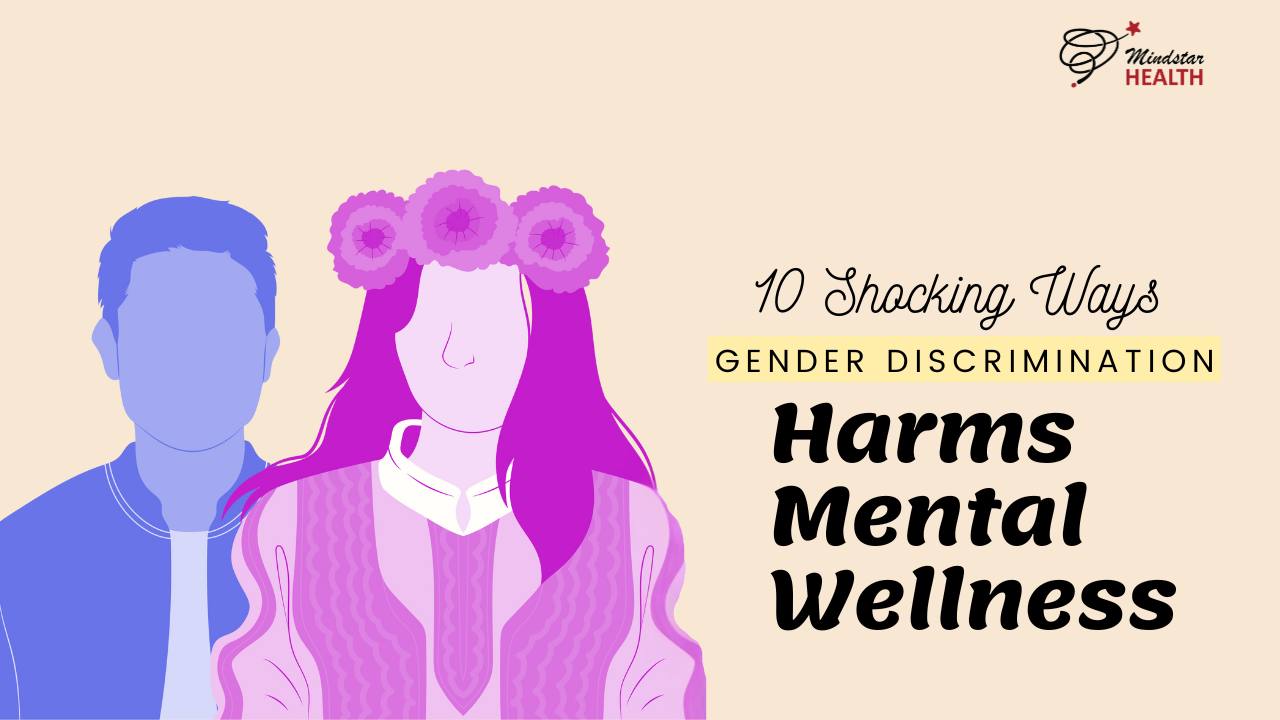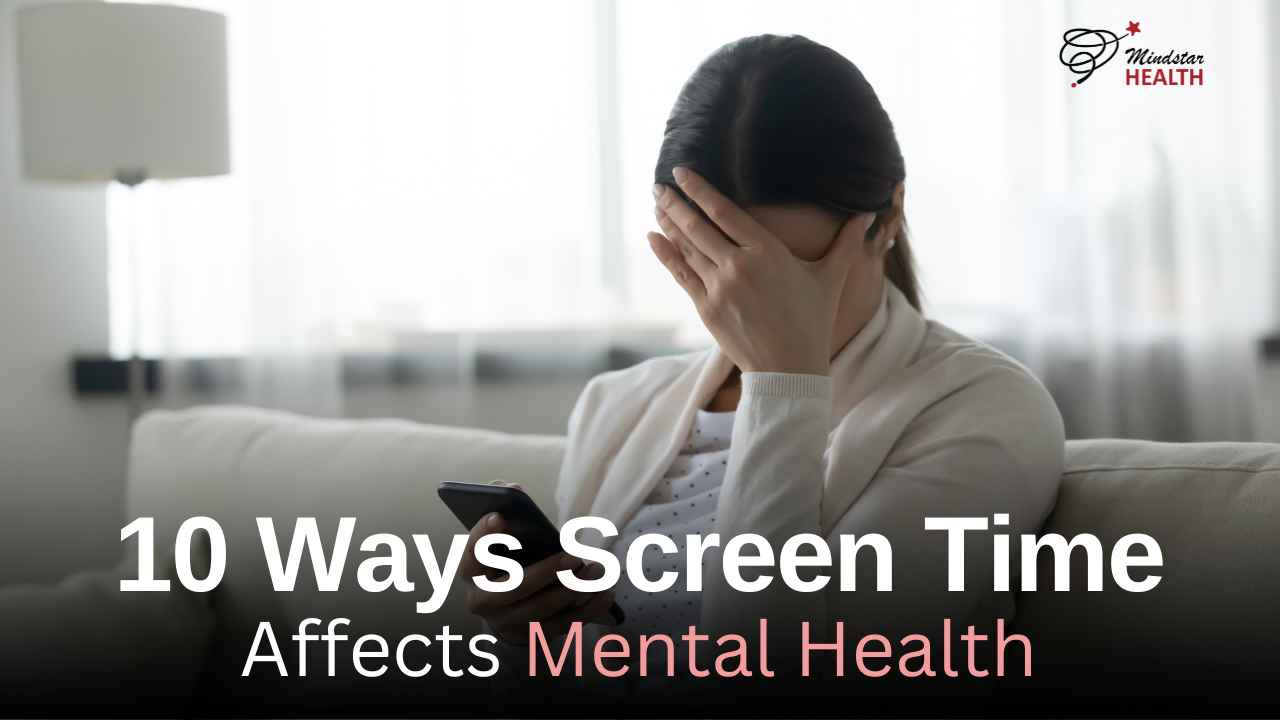Imagine you’re standing at a crossroads, unsure of which direction to take. This is how many individuals with bipolar disorder feel when it comes to seeking therapy. The idea of finding the right therapist to help manage mood disorders and support mental health can feel overwhelming.
Whether you’ve been living with bipolar disorder for years or are newly diagnosed, therapy plays a vital role in managing your condition. But with so many therapists out there, how do you know where to start? We’re here to guide you through the process of finding the therapist who’s best suited to support you in your journey toward mental wellness.
Why Finding the Right Therapist is Crucial
Bipolar therapy is not one-size-fits-all. The right therapist will work with you to manage your symptoms, provide therapist consultations, and collaborate on a comprehensive treatment plan. But how do you choose the right professional?
Research shows that effective therapy for bipolar disorder can lead to better symptom management, fewer mood swings, and a higher quality of life. In fact, studies indicate that cognitive behavior therapy (CBT) and family-focused therapy can significantly improve outcomes for individuals with bipolar disorder.
In this guide, we will walk you through practical steps for finding a therapist who understands your needs, offers the right treatment, and helps you work toward lasting mental well-being.
Where to Start Your Therapist Search
1. Start with a Referral
One of the most effective ways to begin your therapist search is by asking for a referral from a trusted healthcare provider. This could be your primary care physician, psychiatrist, or another mental health professional you currently work with. These professionals often have established networks of therapists who specialize in treating mood disorders, particularly bipolar therapy.
Why a Referral is Beneficial
- Trusted Network: Your healthcare provider likely works closely with several therapists who have experience in managing bipolar disorder and can offer personalized recommendations.
- Expert Insight: Physicians and psychiatrists understand your medical history and can refer you to a therapist who aligns with your specific treatment needs.
- Time-Saving: Instead of searching through countless options, a referral can help narrow your focus and save valuable time.
Statistics to Consider
According to a 2020 study by the National Institute of Mental Health, about 2.8% of adults in the U.S. experience bipolar disorder, highlighting the need for specialized care. Seeking a referral from your healthcare provider increases the likelihood of finding an experienced therapist who can address your unique mental health needs.
- Key Takeaway: Referrals from trusted healthcare providers can guide your therapist consultation and ensure that you receive appropriate care for your bipolar disorder.
2. Explore Medical Centers and Clinics
When searching for the right therapist for bipolar therapy, local medical centers and outpatient clinics can be incredibly valuable. These facilities often have dedicated departments for mental health services, where professionals specialize in treating mood disorders like bipolar disorder. Many clinics offer comprehensive programs that include therapy and medication management, ensuring a holistic approach to treatment.
Benefits of Medical Centers:
- Specialized Care: Many hospitals and clinics have psychologists and psychiatrists with experience in bipolar therapy, providing tailored treatment options.
- Comprehensive Services: These centers may offer a combination of therapy, medication management, and other support services, allowing for a more integrated approach to mental health.
- Convenience: Medical centers often have various resources in one location, making it easier for patients to access therapy and other services.
University-Based Training Clinics:
For those seeking affordable therapy options, university-based clinics offer great value. These clinics provide therapy sessions with graduate students studying psychology or social work, all supervised by licensed professionals. This allows individuals to access high-quality therapy at a lower cost.
- Key Takeaway: Medical centers and university clinics provide excellent options for those seeking comprehensive therapist consultations for bipolar disorder treatment, often at more affordable rates.
3. Check National Mental Health Organizations
When searching for the right therapist, national mental health organizations can be invaluable resources. Established organizations such as the Depression and Bipolar Support Alliance (DBSA), the National Alliance on Mental Illness (NAMI), and the International Bipolar Foundation (IBPF) offer comprehensive directories of therapists. These directories allow individuals to filter therapists by specialty, location, and expertise in bipolar therapy.
Why Use These Directories?
These organizations focus specifically on mood disorders like bipolar disorder and have a network of professionals who specialize in treating this condition. By using these resources, you are more likely to connect with a therapist who understands the complexities of bipolar disorder and can offer targeted care.
- DBSA offers an extensive therapist search tool, connecting patients with trained professionals specializing in bipolar and depression treatment.
- NAMI also provides resources, including a list of mental health professionals experienced in treating mood disorders
According to NAMI, nearly 2.8% of adults in the U.S. experience bipolar disorder, and finding a therapist with the right expertise can significantly improve treatment outcomes. Utilizing these directories can save time and ensure you find a therapist consultation with someone who understands your needs.
- Key Takeaway: National organizations like DBSA and NAMI offer trusted directories to help you find qualified therapists experienced in treating bipolar disorder.
4. Search Online Therapy Platforms
In today’s digital age, online therapy platforms have revolutionized the way individuals access bipolar therapy and mental health support. Services like BetterHelp, Talkspace, and other virtual counseling platforms allow you to connect with licensed therapists conveniently from your home. This option is ideal for those living in rural areas, people with mobility challenges, or individuals who simply prefer the comfort and privacy of online consultations.
Benefits of Online Therapy:
- Convenience and Accessibility: You can schedule sessions at times that work best for you, without the need to travel.
- Affordability: Online platforms often offer lower fees compared to in-person sessions, making therapy more accessible.
- Anonymity and Comfort: For those who feel uncomfortable or stigmatized by in-person visits, online therapy provides a safe, confidential space to discuss personal issues.
- Specialized Care: These platforms can connect you with therapists who specialize in mood disorders, including bipolar disorder, ensuring you receive expert care.
Statistical Insights:
A study published by the American Psychiatric Association revealed that online therapy can be just as effective as traditional face-to-face therapy for treating mood disorders, including bipolar disorder.
- Key Takeaway: Online therapy platforms are a flexible, cost-effective, and accessible option for individuals seeking therapist consultations for bipolar therapy.
5. Join Support Groups
Support groups, whether in person or online, are an excellent resource for individuals seeking bipolar therapy. These groups provide a unique opportunity to connect with others who share similar experiences in managing mood disorders. By sharing stories, members can offer personal insights into what types of therapy and therapists have worked for them.
Why Join a Support Group?
- Firsthand Recommendations: Members of support groups often share their experiences with therapist consultations, offering recommendations based on personal success stories.
- Emotional Support: Engaging with others who understand your struggles can provide much-needed emotional support during your search for the right therapist.
- Resource Sharing: Many support groups have directories or databases of therapists who specialize in bipolar therapy and other mental health conditions. These resources can be invaluable when navigating the therapist search process.
Statistical Insights
Research has shown that peer support significantly improves treatment outcomes for those with bipolar disorder. According to a study by the National Institute of Mental Health, individuals who engage in support groups report better treatment adherence and a greater sense of control over their condition.
- Key Takeaway: Support groups offer both practical resources and emotional guidance, helping you make informed decisions about your bipolar therapy options.
6. Consult Your Insurance Provider
When searching for a therapist for bipolar therapy, consulting your health insurance provider is a smart step. Many insurance companies offer online directories of therapists who are part of their network, making it easier to find mental health professionals who specialize in mood disorders and are covered by your plan. This can significantly reduce your out-of-pocket expenses for therapist consultations.
- Benefits of Using Your Insurance Provider:
- Cost Efficiency: Insurance-covered therapists may offer lower rates than those who don’t accept insurance, helping you manage the cost of therapy.
- Accessibility: Insurance providers often have therapists available in various specialties, including bipolar disorder and other mood disorders, making it easier to find a suitable match.
- In-network vs. Out-of-network: Check if the therapist is in-network to ensure lower fees. Out-of-network therapists may be covered, but often at a higher cost or deductible.
Key Points to Remember:
- Referral Requirements: Some insurance plans require a referral from your primary care doctor before you can see a therapist. Always verify this before making an appointment.
- Therapist Consultation: Make sure the therapists you choose specialize in bipolar therapy to ensure the best possible care.
- Key Takeaway: Consulting your insurance provider not only helps you find a therapist but also ensures you stay within your budget while receiving effective treatment for mood disorders.
7. Look for Therapists with Specialized Training
When searching for the right therapist for bipolar therapy, it’s crucial to choose someone with specific expertise in treating bipolar disorder. This condition requires a tailored approach, as it involves complex mood shifts that affect daily life. Therapists trained in evidence-based therapies can provide the most effective care for individuals with mood disorders.
Specialized Training in Bipolar Therapy
Therapists who specialize in bipolar therapy are familiar with the nuances of managing extreme mood swings, including manic and depressive episodes. Training in therapies such as Cognitive Behavioral Therapy (CBT), which focuses on altering negative thought patterns, or Family-Focused Therapy, which includes family members in the treatment process, can be particularly helpful. Studies show that CBT significantly reduces the recurrence of mood episodes in people with bipolar disorder.
- Key Takeaway: Therapy types like CBT and Family-Focused Therapy can be highly effective in managing bipolar disorder symptoms.
How to Find Qualified Therapists
You can check a therapist’s credentials through online therapy directories or their professional websites. Look for certifications or experience in mood disorders and mental health treatments. Many therapists also offer a therapist consultation, which allows you to ask questions about their approach before committing.
- Key Takeaway: A therapist with specialized training ensures that you receive the most effective, individualized treatment for your bipolar disorder.
Questions to Ask Potential Therapists
When searching for the right therapist for bipolar therapy, it’s essential to ask the right questions during your therapist consultation to ensure they are equipped to manage your mood disorder. Here are some important questions:
- What types of therapy do you use for bipolar disorder?
Understanding the therapist’s approach, such as Cognitive Behavioral Therapy (CBT), helps you assess their treatment style. - How do you support clients who take medication?
Collaboration with psychiatrists is crucial for effective management of mental health. - What is your approach to managing mood swings and triggers?
Look for a therapist who addresses both emotional and behavioral aspects of bipolar disorder.
These questions ensure the therapist’s expertise aligns with your treatment needs.
- Key Takeaway: Ensure your therapist has relevant experience and a clear treatment approach to successfully manage your bipolar disorder.
Effective Therapy Types for Bipolar Disorder
There are several types of therapy that are particularly effective in managing bipolar disorder. These include:
1. Cognitive Behavioral Therapy (CBT)
Bipolar therapy often includes Cognitive Behavioral Therapy (CBT), which is highly effective for managing mood disorders. CBT focuses on identifying and changing negative thought patterns that can contribute to mood swings, such as feelings of hopelessness or over-optimism during manic episodes. By addressing these cognitive distortions, CBT helps individuals develop healthier thinking patterns, leading to better emotional regulation.
Studies show that CBT can reduce the frequency and intensity of bipolar disorder symptoms, such as manic and depressive episodes, making it an essential tool in therapist consultations for those seeking long-term mental health stability.
- Key Takeaway: CBT is effective in stabilizing mood by challenging unhelpful thoughts and promoting emotional balance.
2. Family-Focused Therapy
Family-focused therapy is an essential aspect of bipolar therapy for individuals whose loved ones are involved in their care. This approach not only educates family members about the condition but also provides strategies to manage mood disorders and reduce the frequency of episodes.
- Support and Understanding: Family members learn how to recognize triggers, reduce stress, and create a stable environment that supports emotional regulation.
- Improved Communication: The therapy fosters better communication within families, helping everyone understand each other’s needs and emotions.
- Evidence-Based Effectiveness: Research shows that family-focused therapy can significantly reduce relapse rates and improve overall mental health outcomes for individuals with bipolar disorder.
- Key Takeaway: Family-focused therapy enhances therapist consultation, strengthens family bonds, and promotes long-term stability.
3. Interpersonal and Social Rhythm Therapy (IPSRT)
Interpersonal and Social Rhythm Therapy (IPSRT) is an evidence-based approach that emphasizes the importance of daily routines in managing bipolar disorder. This therapy focuses on stabilizing social rhythms and addressing interpersonal issues, which can contribute to mood shifts.
How It Helps:
- Sleep Stability: Ensuring consistent sleep patterns to prevent triggering manic or depressive episodes.
- Social Activities: Encouraging regular social interactions to maintain emotional balance.
- Stress Management: Helping individuals cope with stress, a known trigger for mood changes.
Key Takeaway: Developing a structured routine through IPSRT can significantly reduce mood fluctuations, promoting stability in daily life and better mental health outcomes.
Traits to Look for in a Therapist
When selecting a therapist for bipolar therapy, certain traits are essential to ensure a productive therapeutic relationship:
- Collaboration: A good therapist should be willing to collaborate with other healthcare providers, such as your psychiatrist or primary care doctor, to create a cohesive treatment plan.
- Empathy: Therapists must show empathy, compassion, and understanding of your struggles. Trust and respect are key for positive therapy outcomes.
- Engagement: A therapist who listens actively, remembers important details, and stays engaged in the process is essential for your success.
- Key Takeaway: A therapist who collaborates, listens, and shows empathy is crucial for effective bipolar therapy.
Signs It’s Time to Switch Therapists
While it can take time to build a therapeutic relationship, sometimes things just aren’t working. If you notice the following signs, it may be time to look for a new therapist:
- Lack of engagement or forgetfulness
- Inability to address your specific needs
- Discomfort or lack of trust
If you feel like your therapist isn’t the right fit, it’s okay to seek out someone new who better aligns with your treatment goals.
- Key Takeaway: Don’t hesitate to switch therapists if you feel your current one is not meeting your needs.
At a Glance: Key Takeaways
- Start with referrals from healthcare providers and trusted organizations.
- Ask the right questions during your therapist consultation to gauge expertise and approach.
- Consider effective therapy types like CBT, family-focused therapy, and interpersonal therapy.
- Look for collaborative, engaged, and empathetic therapists who prioritize your mental well-being.
FAQs: Finding the Right Therapist for Bipolar Disorder
1. How much does bipolar therapy cost?
The cost of therapy can range from $65 to $200 per session, depending on your location and therapist’s specialization.
2. How do I know if my therapist is the right fit?
A good therapist listens, collaborates, and shows empathy. If you feel comfortable, respected, and engaged in therapy, it’s a good sign they’re a good fit.
3. Can I switch therapists if I don’t feel comfortable?
Yes! If you feel uncomfortable or find that your therapist isn’t meeting your needs, it’s okay to seek a new professional.
Conclusion: The Right Therapist for You
Finding the right therapist for bipolar disorder may take time, but with patience and the right approach, you can find someone who supports your mental well-being. Keep in mind that bipolar therapy is not just about managing symptoms—it’s about building a partnership with a therapist who helps you navigate life with bipolar disorder. Trust the process, and remember that the right therapist is out there waiting for you.






















Leave a Reply
You must be logged in to post a comment.